what we do
What Takes 40 Women Laboring Two Grueling Days Barefoot In A Rice Paddy, the Eli Seeder Can Do In Just One Hour With One Farmer
Update:
Witness to History
BB2C Empowers Women Farmers
BB2C now provides training for women to understand seeder technology. Agricultural mechanization increases gender inequities. Men are the beneficiaries of training for farm improvement, especially farm mechanization leaving women behind. The research shows that the lack of women’s technical knowledge results in a loss of empowerment, reducing their status in the home and community.
BB2C’s affordable leapfrog technology is a paradigm shift in how rice is planted in Cambodia and how it can be planted throughout all of Southeast Asia and beyond.
For centuries Cambodian farmers planted rice in the effective but labor-intensive method of transplanting seedlings individually by hand to rows in rice paddies. Increased migration to cities causing severe labor shortage in rural areas has resulted in broadcasting rice seeds, a method used by up to ninety percent of the farmers and practiced out of desperation. Broadcast planting or indiscriminately throwing seeds on a field relies heavily on fertilizer, pesticides, fungicides, herbicides, and causes damage to the ecosystem. No spacing between seedlings causes lower yields because competition for nutrients is higher, and weeding becomes difficult. Therefore, lower profits.
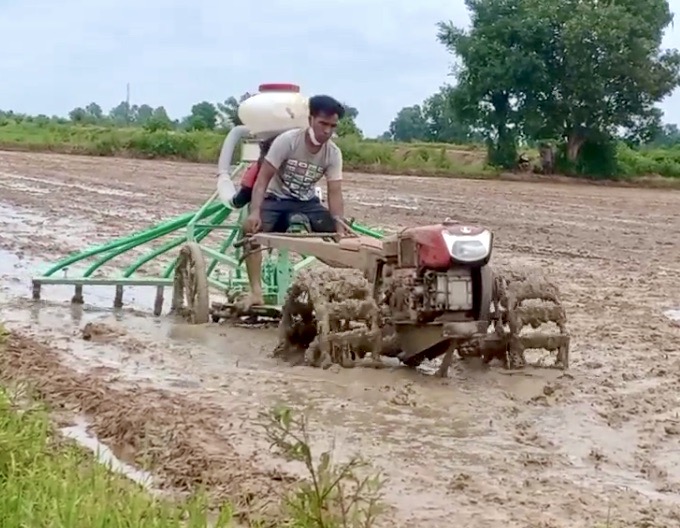
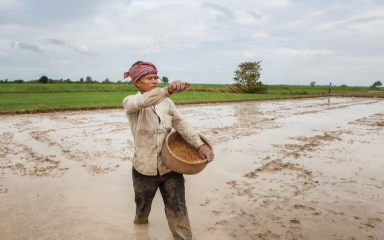
The market is evolving and BB2C, with our affordable, locally produced technology, addresses this urgent need for a new method. BB2C’s technology brilliantly shoots the seeds into the ground with uniform spacing. Seeds embedded are drought resistant since the soil contains more moisture deeper in the ground. The seeds are also protected from being washed away by flooding. Embedded seeds are protected from pests such as rats, snakes, and birds.
Our new addition to the product line, the Eli Rice Seeder, is a rice planter that does away with the backbreaking work of women bending over all day in rice paddies or the ineffective method of broadcasting the seeds.
We Believe People Must Be In Charge Of Their Own Development
In contrast to what other large aid agencies do, BB2C is promoting the concept that the farmers can do it themselves; it is through their own efforts that they will increase opportunities for themselves and their families.
We will provide the technology, but the farmers will provide the drive and skills to create a better life.
 We do not only sell products. Our experienced field staff also provide full training on how to operate each tool in the most effective way.
We do not only sell products. Our experienced field staff also provide full training on how to operate each tool in the most effective way. We are nimble. We are resourceful. We are dedicated. We find innovative ways to expand on a modest budget.
We are pragmatic idealists seeking to solve huge problems with simple proven solutions.
We are a “can-do” organization which can change direction on a dime if a better idea is found to reach our goals.
In the beginning, until we could afford a safer truck, we traveled great distances on the rutted roads of Cambodia to market our pumps on a motorbike with a cart.
 BB2C feels a tremendous weight on its shoulders and spends much time – and a majority of its resources – building awareness and trust in the tools we offer.
BB2C feels a tremendous weight on its shoulders and spends much time – and a majority of its resources – building awareness and trust in the tools we offer. 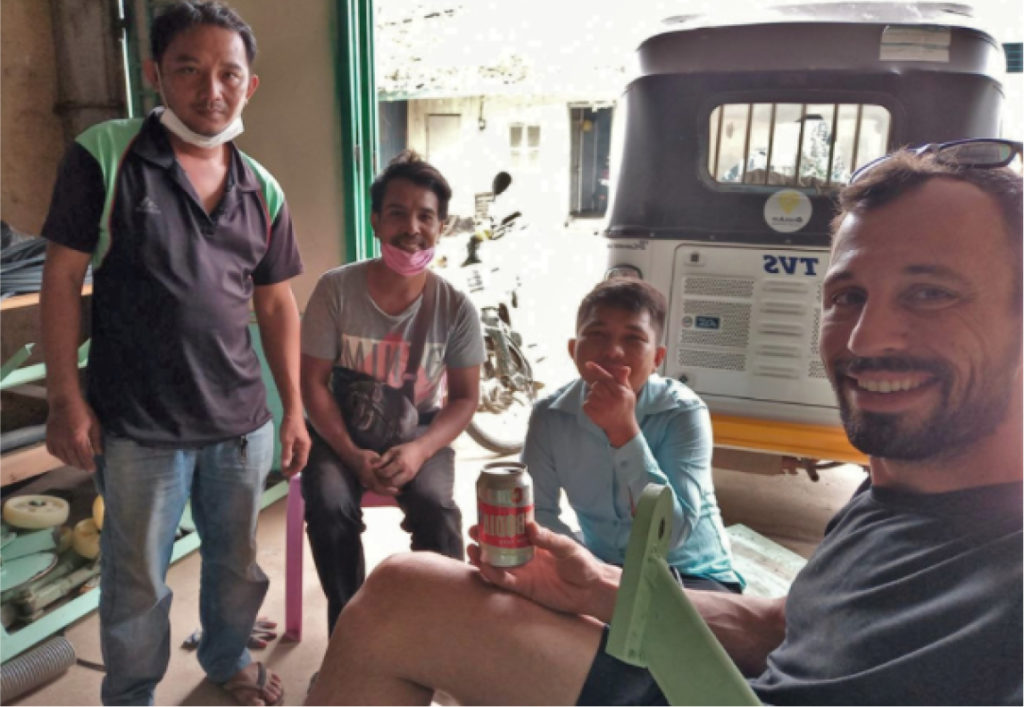
“The Cambodian team is extraordinary, from the dedicated engineers to the devoted workshop staff. A great organization is a thousand little sacrifices when no one is looking – the administration working in an office with no air-conditioning, the outreach team driving over rutted roads, the engineers working late into the night, the workshop staff working in the heat of the day on a weekend, it takes everyone.”
– Paula Shirk
Recognition
Prime Minister testing the Eli Seeder.
The Eli Seeder was endorsed by the Minister of Agriculture on several occasions and by Prime Minister Hun Sen. In late 2020 the Prime Minister promised the distribution of 2000 units of the Eli Seeder to small-holder farmers.
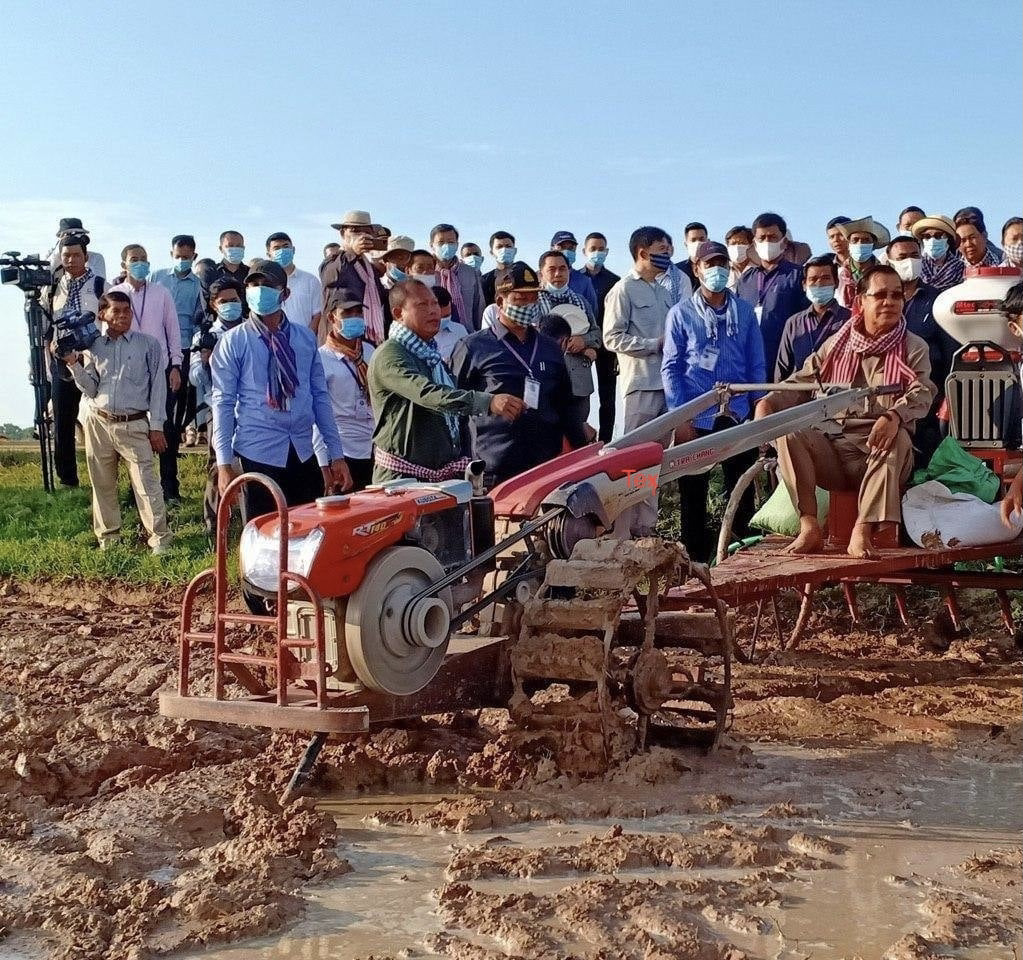
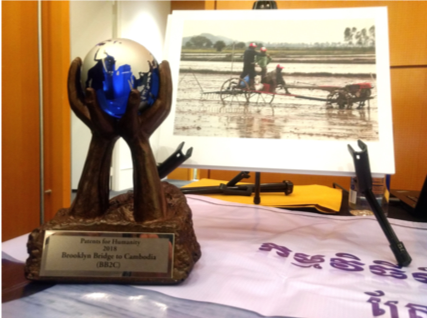
The Prestigious Patent for Humanity
BB2C was awarded the prestigious Patent for Humanity issued by the US Patent and Trademark office. Prior winners included major organizations such as Microsoft.
Direct Rice Seeding Consortium
BB2C is a founding member of the Direct Rice Seeding Consortium organized by IRRI (www.dsrc.irri.org). Members include leading research institutes in India, China, Philippines, Thailand, Bangladesh, Malaysia, etc., and leading private companies such as BASF, Syngenta, etc., with the goal of promoting direct rice seeding in Asia.
UN’s CGAIR group
The UN’s CGAIR group (Consultative Group for International Agricultural Research) established the platform of Excellence in Agronomy (EiA) in 2020 and chose direct seeding in Cambodia as a pilot. BB2C is working with IRRI and others to produce evidence-based data on the advantages of direct rice seeding using the ELI technology.

BB2C is acting on the Eight United Nations Sustainable Goals (SDGs)
The United Nation Sustainable Development Goals also known as Global Goals, are a set of 17 integrated and interrelated goals to end poverty, protect the planet and ensure that humanity enjoys peace and prosperity by 2030.

